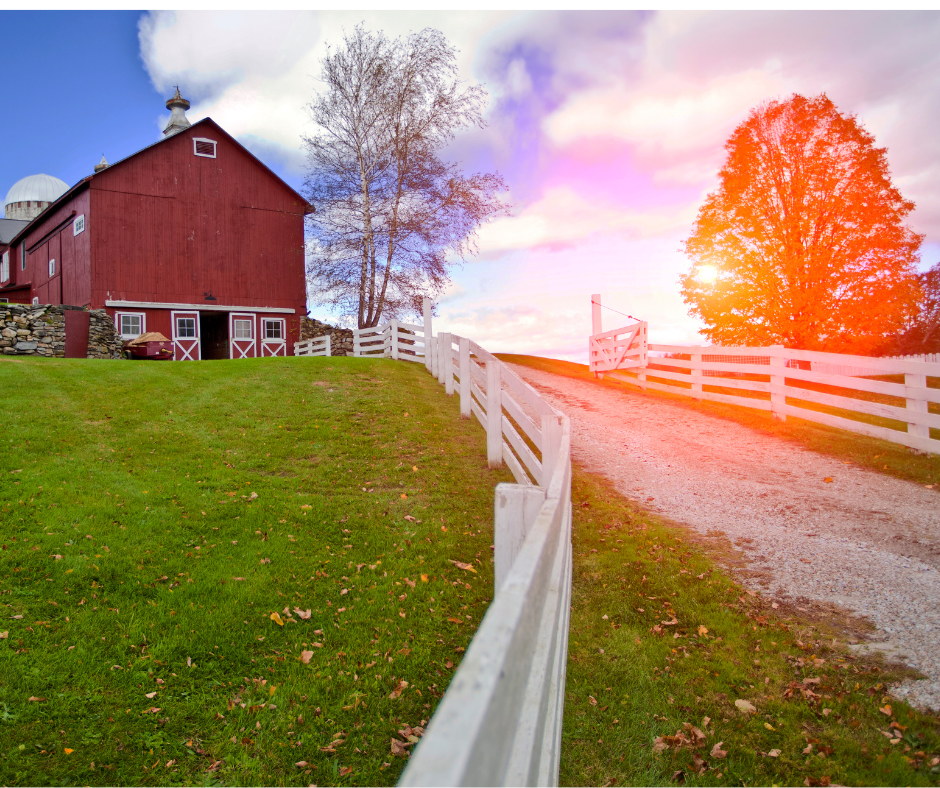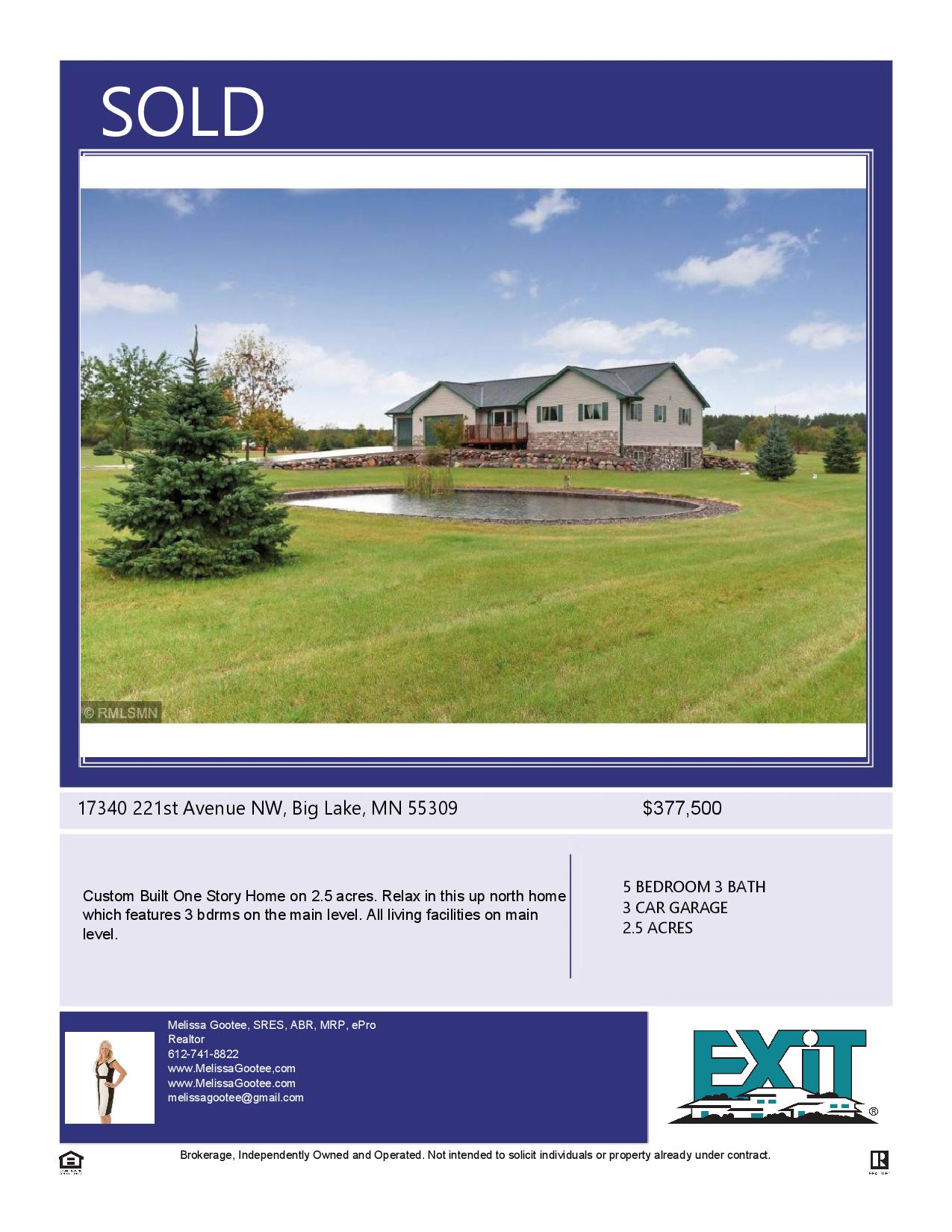Discover Your Dream Hobby Farm
Discover Your Dream Hobby Farm:

Owning a hobby farm in Minnesota can provide a wide range of opportunities and benefits. Whether you're interested in growing your own food, raising animals, or connecting with nature, there are many different ways to use your hobby farm.
Here are 10 examples on how you could use your hobby farm:
-
Vegetable Gardening: Vegetable gardening is a popular hobby among hobby farmers in Minnesota. With the state's fertile soil and long growing season, you can grow a variety of fruits, vegetables, and herbs. You can use your produce to feed your family, sell at local markets, or donate to food banks. Not only is vegetable gardening a fun and rewarding activity, but it can also provide you with fresh, healthy food and a sense of self-sufficiency.
Check out these blogs for more tips on Vegtable Gardening
2. Animal Husbandry: If you're interested in raising animals, a hobby farm can provide a sustainable source of meat, eggs, milk, or fiber. You can raise chickens, cows, goats, or sheep, depending on your interests and needs. You'll need to ensure that your animals have adequate shelter, pasture, and feed, and that you're following animal welfare guidelines. Animal husbandry can be a challenging but rewarding activity that allows you to form a bond with your animals and appreciate where your food comes from.
Check out these blogs for more tips on Animal Husbandry
3. Horseback riding: If you have horses, your hobby farm can provide a great place to ride and exercise them. Minnesota has many scenic trails and countryside roads that are perfect for horseback riding. You can also use your hobby farm to practice riding techniques, train for competitions, or simply enjoy spending time with your horses. Horseback riding is not only a fun and enjoyable activity, but it can also provide you with a great way to stay active and healthy.
Check out these blogs for more tips on Horse back riding
4. Beekeeping: Beekeeping is a popular activity among hobby farmers in Minnesota. Bees are essential pollinators, and they also produce honey and beeswax. You'll need to ensure that your bees have access to nectar and pollen sources, and that you're following proper hive management techniques. Beekeeping can be a fascinating and rewarding activity that allows you to connect with nature and appreciate the importance of bees in our ecosystem.
Check out these blogs for more tips on Beekeeping
5. Forestry: If you have wooded areas on your hobby farm, you can manage them for timber production, wildlife habitat, or conservation purposes. You can also harvest firewood for personal use or sale. Forestry can be a sustainable and profitable activity that allows you to appreciate the beauty of nature and contribute to environmental conservation.
Check out these blogs for more tips on Forestry
6. Hunting and fishing: If you have wooded areas or ponds on your hobby farm, you can use them for hunting and fishing. Minnesota has many opportunities for hunting and fishing, including deer, turkey, pheasant, and walleye. You'll need to ensure that you're following all hunting and fishing regulations and safety guidelines. Hunting and fishing can be a fun and exciting activity that allows you to appreciate the natural resources of your hobby farm.
Check out these blogs for more tips on Hunting & Fishing
7. Agritourism: If you're interested in generating income from your hobby farm, you can offer tours, workshops, or educational programs. Agritourism can be a great way to promote sustainable agriculture, educate the public about farming, and generate revenue. You can offer tours of your farm, host workshops on gardening or animal husbandry, or run a farm store that sells your produce and products.
Check out these blogs for more tips on Agritourism
8. Off-grid living: If you're interested in living off the grid, your hobby farm can provide a great place to do so. You can install renewable energy systems such as solar panels or wind turbines, use composting toilets, and practice sustainable water management. Off-grid living can be a rewarding and self-sufficient lifestyle that allows you to live in harmony with nature
Check out these blogs for more tips on Off-Grid Living
9. Community-supported agriculture: If you're interested in connecting with your local community, you can sell shares of your harvest through a community-supported agriculture (CSA) program. This involves selling a portion of your harvest to local consumers, who receive regular deliveries of fresh, locally-grown produce. CSA programs can be a great way to build relationships with your customers, promote sustainable agriculture, and generate income.
Check out these blogs for more tips on Community-Supported Agriculture
10. Homesteading: If you're interested in self-sufficiency and living off the land, homesteading may be the perfect way to use your hobby farm. Homesteading involves producing your own food, generating your own energy, and using natural materials for construction and household needs. This may include gardening, animal husbandry, composting, and off-grid living techniques. Homesteading can be a fulfilling and self-sufficient lifestyle that allows you to live in harmony with nature
Check out these blogs for more tips on Homesteading
Owning a hobby farm in Minnesota can provide a wide range of opportunities and benefits. Whether you're interested in vegetable gardening, animal husbandry, horseback riding, or homesteading, there's a way to use your hobby farm that fits your interests and goals. By connecting with nature, promoting sustainability, and building relationships with your local community, you can create a fulfilling and rewarding lifestyle on your hobby farm.
**Scroll down to the bottom of this page to start your search for you hobby farm**
What defines a hobby farm in Minnesota?
In Minnesota, a hobby farm is generally defined as a small farm that is operated primarily for pleasure or personal use, rather than for commercial purposes. There is no specific acreage requirement to qualify as a hobby farm in Minnesota, but the property must have enough land to support the agricultural activities being undertaken.
Some common characteristics of a hobby farm in Minnesota may include:
-
Small size: A hobby farm is typically smaller than a commercial farm, often ranging from a few acres to a few dozen acres.
-
Diverse activities: Hobby farms often include a variety of agricultural activities, such as growing crops, raising animals, and producing honey or maple syrup.
-
Personal use: The products and produce from a hobby farm are typically consumed by the owner and their family, rather than sold commercially.
-
Supplemental income: While a hobby farm is not operated primarily for profit, some owners may generate some supplemental income from selling excess produce or products.
-
Conservation and sustainability: Many hobby farmers in Minnesota prioritize sustainable farming practices and conservation efforts, such as crop rotation, composting, and conservation of natural habitats.
I am committed to helping you sell or find your dream hobby farm. With my expertise and guidance, you can feel confident and prepared every step of the way.













